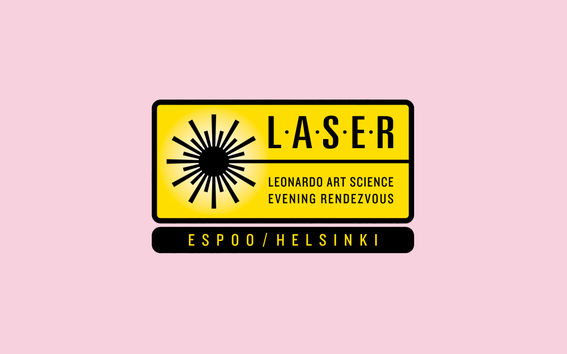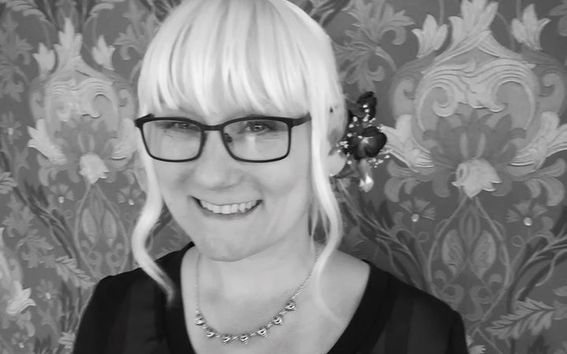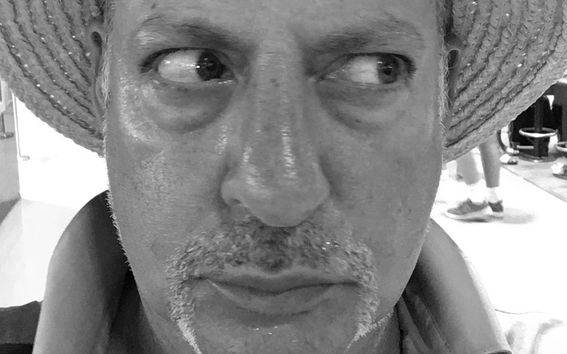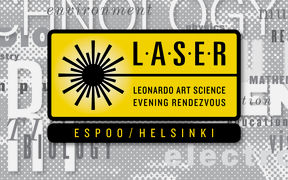LASER Talks: Adaptation and Bodies in Context

Milloin
Missä
Tapahtuman kieli
- Millä tavoin me (ihmiset) pystymme lajeina sopeutumaan elinympäristömme ja ympäristömme muutoksiin? Ja mitä siitä seuraa?
- Onko mahdollista suunnitella positiivisia strategioita (taiteellisia, tieteellisiä tai muita), joilla globaalien järjestelmien akuutteihin shokkeihin ja kroonisiin kuormitustekijöihin voidaan sopeutua, mutta myös muuttaa niiden suuntaa?
- Missä tilanteissa sopeutuminen on ongelmallista ja johtaa odottamattomiin seurauksiin?
- Kuinka pandemiat vaikuttavat yhteiskuntaan ja muuttavat suhdettamme vartaloihimme - omiimme ja muiden?
Näiden ja muiden kysymysten äärelle kokoonnutaan Aalto-yliopiston ensimmäisessä LASER Talksissa, jonka teemana on Adaptation and Bodies in Context. Leonardo Art Science Evening Rendezvous (LASER) -tapahtuma on avoin kaikille. Tapahtuma pidetään Zoomissa ja se taltioidaan.
Puhujina ovat Pauliina Ilmonen, Adam Zaretsky ja Cristina Zaga. Tapahtuman moderaattorina toimii professori Laura Beloff.

About the speakers
Pauliina Ilmonen, Assistant Professor in Statistics, Aalto University
Pauliina Ilmonen is a researcher from the field of mathematical statistics and member of COVID-19 scientific expert groups. Her work addresses humans, senses, and the messages that we send and receive.
In blind source separation, the components of an observed vector, signals, are assumed to be some functions of unobservable source components. The aim is to recover the hidden (unobservable) components by estimating the corresponding mixing functions. We, humans, are a bit like blind source separation system. We receive information through all our senses. We hear, we see, we touch, we smell, and we taste. We observe these five components and we try to extract information based on that. We try to recover the (hidden) message.
In blind source separation, if some of the signals are weak or missing, it complicates estimation and the importance of the remaining components grow. That happens to us humans as well. If we can not touch, we listen more carefully. If we have to cover our mouth and nose, we try to extract information by looking at the eyes, but the signal is weaker.
Are we still able to recover the messages that other humans are sending to us? Do we estimate the mixing functions more carefully or are we lost? Does laughter become more important now that we can not hug? And what happens when, after a long period of missing and weak signals, we can finally touch and see the whole picture?
Pauliina Ilmonen (Finland) is Assistant Professor in Statistics at Aalto University School of Science, Department of Mathematics and Systems Analysis. In her research work, she focuses on topics in the field of mathematical statistics. Her most significant research topics include multivariate extreme value theory, invariant coordinate selection (ICS), Blind source separation (BSS), functional data analysis (FDA), change point analysis, and analysis stationary processes. Also, pure mathematics is close to her heart.
Her interest there lies on characteristics of meet and join (hyper)matrices. In addition to deriving theoretical results, she devotes some of her time to applied research related to epidemiology. The topics that interest her are cancer epidemiology and epidemiology of viruses. Doing applied work enables her to contribute to research that may have significant public health implications. Since 2018 Pauliina Ilmonen has served as the chair of the Finnish Statistical Society and she is a member of FENStatS COVID-19 working group and a member of IAP COVID-19 expert group.

Dr. Adam Zaretsky, Professional Lecturer of Media Arts
Adam Zaretsky, whohas been long working with microbes, insects and plants as creative agents, will consider in his presentation Contagion, Cures, Containment and Contact – from an uncanny perspective.
In a world where hermitage is forced on those who can afford it and chronic risk is forced on those who cannot, what are some options, uncanny and otherwise, for inter-organismal, inter-orificial and inter-rogative explorations of: Contagion, Cures, Containment and Contact?
The viral pandemic has brought us into 2021 with a B-movie dystopian SciFi aftertaste in our mask-covered mouths. We are in the process of accepting experimental mRNA injections on a global scale. People feel caught between Phizer and Pangolins, between chronic risk and impoverished isolation. The emphasis is on air filtration, social distance and one of several rapidly approved and competitive vaccines.
On a brighter note, there is a call for a more grassroots understanding of the virus as a being. We don’t know enough about the virus in a concrete, ethological way. Do coronaviruses like orange juice or prefer milk, plastic or paper? It is a good time to be open to collaborative exploration into contagion prevention and novel cures. Beyond continual vaccine boosters forever, we are in a time of rethinking the boundaries and rituals of human contact.
Adam Zaretsky (US / EU), Ph.D. is a Wet-Lab Art Practitioner mixing Ecology, Biotechnology, Non-human Relations, Body Performance and Gastronomy. His art practice focuses on an array of legal, ethical, social and libidinal implications of biotechnological materials and methods with a focus on transgenic humans.
Zaretsky stages lively, hands-on bioart production labs based on topics such as: foreign species invasion (pure/impure), radical food science (edible/inedible), jazz bioinformatics (code/flesh), tissue culture (undead/semi-alive), transgenic design issues (traits/desires), interactive ethology (person/machine/non-human) and physiology (performance/stress).

Cristina Zaga, Assistant professor, University of Twente, the Netherlands
Cristina Zaga, working at the intersection of robotics and responsible design, is going to speak on how the body is becoming robotic by virtue of communicating through screens, and the implications of using robotic technology in a pandemic.
2020 catapulted us into a future that was in the making for some time. The COVID-19 pandemic accelerated the everyday adoption of technology-mediated communication and human-agents interaction. What was usually confined to laboratory studies and fancy dystopia or utopian op-ed articles became a reality for many people.
Most of us talk through screens or telepresence robots to carry out our professions. Some have started to relieve loneliness by talking to home assistance devices. Healthcare professionals are experimenting with socially assistive robots to support them in addressing the healthcare crisis. While these technologies play a pivotal role in supporting our "new normal," they take a toll on how we conduct social interaction. They influence how we perceive our reality and make sense of the world in both positive and negative ways.
What happens when we do feel like an avatar rather than a person with a body and senses? How our social norms change when we connect through a representation of ourselves? What are the implications of conversing with machine learning-driven technology that delivers a limited range of request-response interactions with sexist and digital colonialist tendencies? What to do when we are sick, and the only human-touch is given by a robot that might deceive us into thinking is more intelligent than it is?
Now more than ever, there is a call for the responsible design of technology. A technology that enables human flourishing does not perpetuate bias and injustice but helps us imagine a future worth wanting.
Cristina Zaga (Netherlands) is an assistant professor, speaker, and maker of poetic robots. At the Human-Centred Design Group (Design and Production Management department) and The DesignLab of the University of Twente, Cristina’s research bridges engineering, design, and philosophy to develop robots responsibly.
She investigates methodologies, methods, tools, and techniques to connect science and society through transdisciplinary responsible design of AI-driven technology. She is particularly interested in developing co-design and speculative design methods to imagine, ideate, and design robots responsibly. Cristina believes in the power of poetic computation to bring about future-oriented reflection on the technology we want to develop.
Previously, Cristina has worked at the Human-Media Interaction Group (University of Twente) and the Robots in Groups Lab (Cornell University, USA) on her doctoral research about “robothings”, everyday robotic objects, and toys, to promote children’s prosocial behaviours in collaborative play.
Her award-winning work in Human-Robot Interaction has received many academic and societal accolades. She is regularly invited as a keynote speaker at events (e.g., TEDx), symposia, and conferences. Cristina is an intersectional feminist and social justice activist. She advocates for technology that is diverse and inclusive. Cristina was selected as Google Women TechMaker Scholar 2018 for her research quality and her efforts to make STEM more inclusive to women and children.
Aalto University liittyi mukaan LASER Talks-keskustelusarjan järjestäjiin vuonna 2020, ja tammikuun tapahtuma tulee olemaan ensimmäinen Suomessa järjestetty LASER Talk. Koronapandemian aikana tapahtumat järjestetään verkossa. Tulevat aiheet julkaistaan vuonna 2021, tavoitteena on järjestää vuosittain 2-4 monitieteistä keskustelua Aallossa. Jos olet kiinnostunut puhumaan tapahtumassa, voit lähettää ehdotuksesi puheenaiheesta: laura.beloff@aalto.fi.
LASER Talks -sarjaa Aallossa järjestävät:
- Laura Beloff, Professor of Visual Culture and Artistic Practices
- Pia Fricker, Professor of Practice, Computational Methodologies in Landscape Architecture and Urbanism
- Ksenia Kaverina, Doctoral Candidate in the School of Arts, Design and Architecture
- Kirsi Peltonen, Senior University Lecturer in the Department of Mathematics and Systems Analysis
- Nitin Sawhney, Professor of Practice in the Department of Computer Science, and
- Koray Tahiroğlu, Academy Research Fellow in the Department of Media.
LASER rohkaisee vaikuttamaan alueelliseen kulttuuriympäristöön edistämällä tieteidenvälistä vuoropuhelua ja mahdollisuuksia rakentaa yhteisöjä yli 40 kaupunkiin ympäri maailmaa.
Kansainvälinen LASER Talks -keskustelusarja alkaa tammikuussa 2021
LASER Talksit ovat Leonardo/International Society for the Arts, Sciences and Technology -järjestön monitieteinen keskustelusarja, johon Aalto-yliopisto liittyi mukaan 2020. Tammikuussa tapahtuma järjestetään ensimmäistä kertaa Suomessa.







